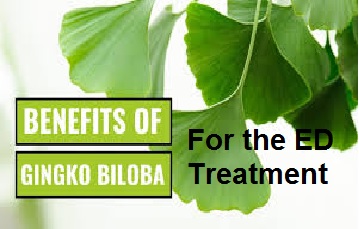The leaves of the Ginkgo balba have an unusual shape, as one might anticipate from a tree of its size. The leaves are frequently used as nutritional supplements due to their alleged potential to enhance memory.
One of the oldest living objects, the ginkgo tree, has existed for 200 million years.
Among the various nations that make up the Asia-Pacific region are China, Japan, and Korea.
Additional benefits include increased cerebral blood flow and antioxidants.
The versatility of ginkgo trees has allowed them to grow all over the world.
They shouldn’t be taken orally, according to a scientific study, because doing so increases the risk of anxiety, eye issues, and memory loss.
In recent years, ginkgo has been utilised in medicine more and more.
Studies show that the best treatment for erectile dysfunction is ginkgo biloba.
Ginkgo has been demonstrated in the past to enhance sexual health, and people who experience erection issues or low libido may find it especially helpful.
Nitric oxide lowers blood pressure by allowing the smooth muscle in the arteries to relax. It’s possible that taking the ginkgo biloba capsules was beneficial for you.
Ginkgo may benefit men with erectile dysfunction if it can boost blood flow to the penile region.
Ginkgo balboa extract may mitigate the libido-depressing effects of antidepressants, according to recent studies (SSRIs). The physiological effects of ginkgo biloba on the body are comparable to those of sugar tablets. SSRIs and ginkgo should not be taken together.
Cenforce, Vidalista 20mg, and Vidalista 80 may be useful if communication is an issue between you and your significant other.
In one study, the impact of ginkgo on women receiving sexual psychotherapy’s sexual desire and satisfaction was examined.
Results were better than when ginkgo and ginkgo were combined or when utilising the drug.
Despite the evident interest, research on the advantages of ginkgo as a treatment for erectile dysfunction has not been done.
Numerous health advantages are attributed to ginkgo trees’ high antioxidant content.
Due to the plant’s high falconoid and terrene concentrations, ginkgo has strong antioxidant properties.
A wonderful strategy to decrease or neutralise the effects of free radicals is to eat foods that are high in antioxidants.
Free radicals, which are extremely reactive particles, are produced during every metabolic function, including digestion and waste disposal.
They might accelerate ageing by removing healthy cells.
Ginkgo trees have been found to have antioxidant effects. This knowledge gap has raised concerns about its mode of action and possible therapeutic efficacy in the treatment of a number of disorders.
It has been demonstrated that the ginkgo balboa contains anti-inflammatory properties.
Inflammation happens when unhealthy cells, organisms, or organs take the place of dangerous ones.
The immune system floods an infection site or a site of tissue injury with inflammatory cells and substances.
Chronic conditions typically result in inflammation, even if there hasn’t recently been an injury or illness. Chronic inflammation is correlated with cellular and genetic problems.
In vivo and in vitro research on human and animal cells have demonstrated the anti-inflammatory effects of ginkgo extract.
The anti-inflammatory effects of ginkgo extract may be helpful for stroke caused by cardiovascular disease. Irritable bowel syndrome (IBS) and rheumatoid arthritis (RA) are recognised risk factors for one another (IBS).
Despite these encouraging results, more human trials on ginkgo for the treatment of these severe illnesses are still necessary.
Studies have connected ginkgo biloba consumption to better blood flow and cardiovascular health.
Ginkgo seeds were used in ancient Chinese medicine to increase blood flow to the liver and kidneys, two vital organs in cellular metabolism and detoxification (kidneys, liver, brain, lungs) (kidneys, liver, brain, lungs).
The plant’s alleged effects are due to its capacity to enhance blood circulation throughout the body.
Patients with heart disease who received larger doses of ginkgo were shown to have increased blood flow to the brain and other organs.
A 13% increase in blood levels of the vasodilator nitric oxide is what causes this effect (NO).
Results from a different research with older participants and ginkgo extract were equivalent.
Numerous studies have connected ginkgo to a range of health advantages, including a decreased risk of stroke and enhanced memory and cognitive function.
Due to the herb’s extensive history of usage in traditional medicine, some of its anti-inflammatory qualities may be explaine.
The ideal ginkgo dosage for cognitive and cardiovascular advantages must be determine through research.
When Ginkgo Balba advises you to relax, he is not joking.
The results suggest that ginkgo may help patients who are anxious.
Ginkgo’s potent anti-anxiety properties have been demonstrate by in vivo experiments on animals to be cause by the plant’s high antioxidant content.
70 GAD patients were give a sugar tablet, a placebo, 240 or 480 mg of ginkgo biloba, or both.
High doses of ginkgo were found to significantly reduce anxiety (45%-70% in some trials) when compare to a placebo.
Early research suggests that ginkgo may have anti-anxiety properties.
For its capacity to lower headache and migraine pain, ginkgo balboa was put to the test.
The well-known TCM analgesic gingko is use to treat migraines and other types of headaches (TCM).
Research on ginkgo has produced a mixed bag of results, despite some promising findings. Finding the source of your headache is the first step in effectively treating it.
The anti-inflammatory and antioxidant properties of ginkgo biloba are particularly remarkable. Ginkgo has been show to lessen stress and headaches.
Some people have used gingko to reduce the discomfort of headaches brought on by insufficient blood flow.
However, for certain people, cardiovascular disease may be a factor in their ongoing headaches. A ginkgo tree could not endure those circumstances.
Their conclusions don’t match reality because they didn’t do enough study. Migraines can be efficiently treat and prevente with ginkgo. It’s important to note that this is a long-term fix.
The Benefits of Ginkgo Balboa Extract for Health Before incorporating ginkgo into your regular routine, speak with your doctor.
Here is a list of all the worst-case possibilities. Common adverse reactions include diarrhoea, nausea, vomiting, sickness, and vomiting in addition to headaches, stomach discomfort, and nausea.
While ginkgo is generally safe to consume, some people may have an adverse reaction.
If you are allergic to alkyl phenols or are currently using drugs that contain them, stay away from ginkgo.




